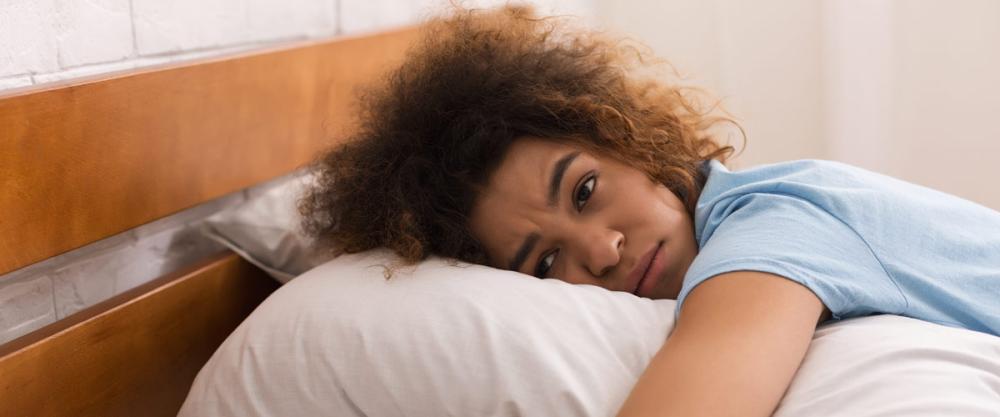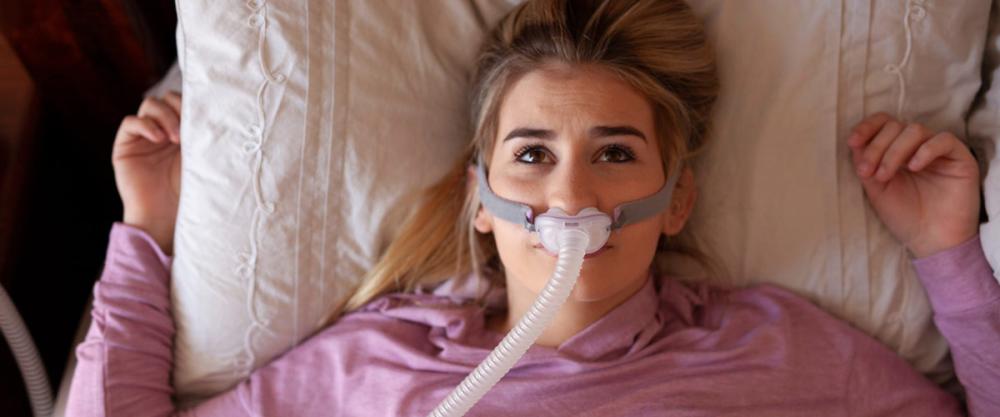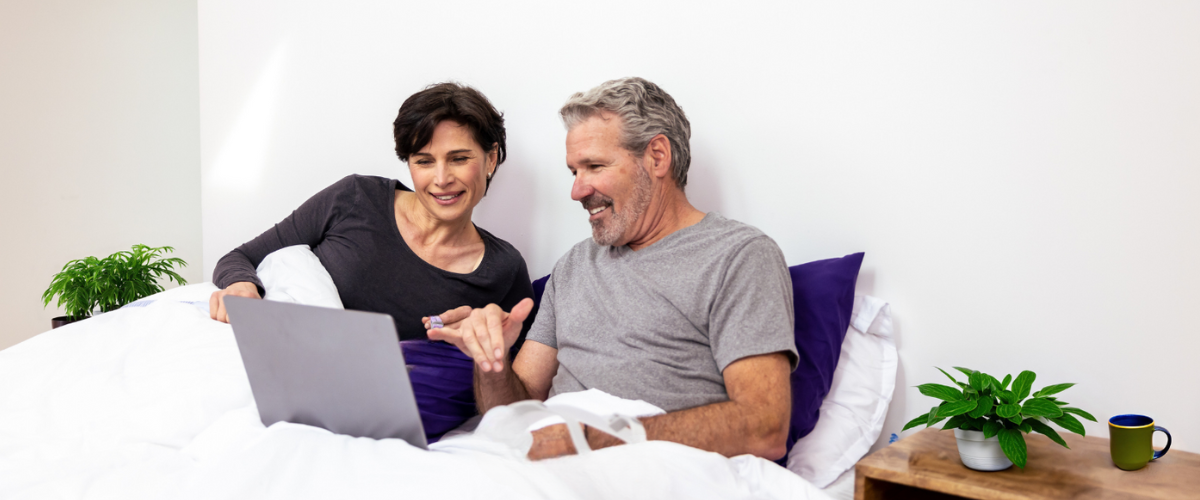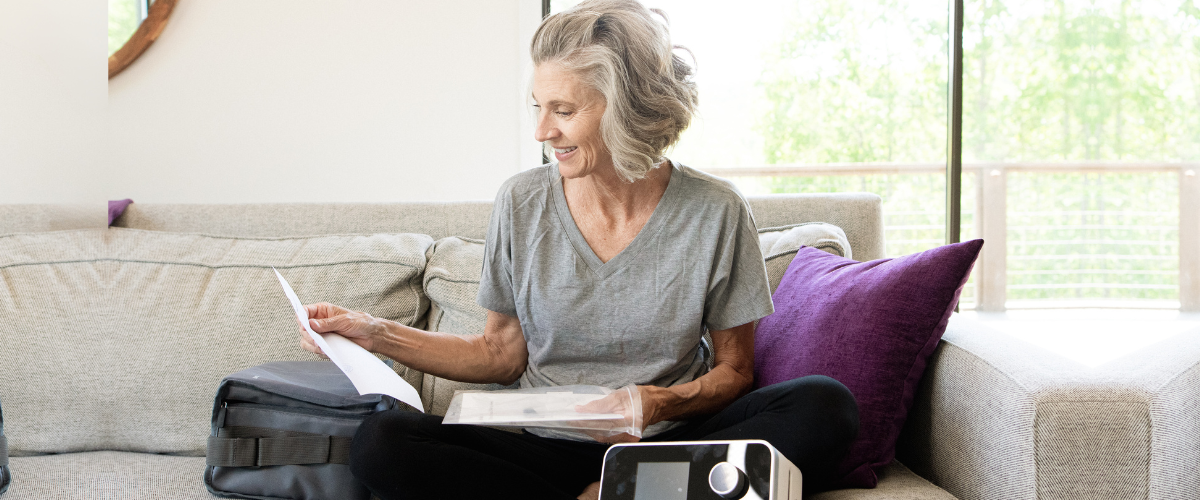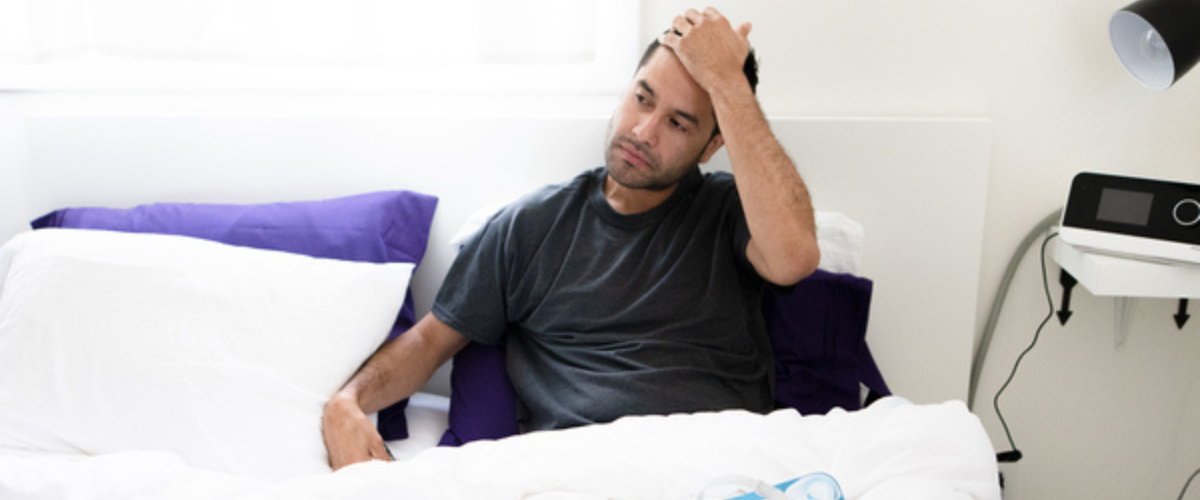Living and working in a fast paced world, being constantly overscheduled and 'always on' can take its mental toll on us, but could your sleep apnea be causing anxiety as well? Or perhaps you’re wondering the reverse - whether your underlying anxiety is causing the sleep apnea. It can be tricky to untangle complicated anxiety disorders, but we can help you sort out the piece concerning OSA - or Obstructive Sleep Apnea. The best way to oust your unease is with reliable, research-backed information!
Table of Contents
Can Sleep Apnea Cause Anxiety?
The science says yes. The puzzle piece that connects OSA with mental health is the decline in effective rest for your mind and body. A lack of sleep can cause anxiety on its own, or worsen pre-existing anxiety from other sources.
OSA often interrupts or prevents deep sleep, which in turn can cause anxiety. Often, people suffering from OSA who have not sought treatment will interpret their daytime sleepiness as a need for sleep medicine. Unfortunately, that’s like slapping a bandaid on a gash that needs sutures - it’s simply not enough because it’s not treating the deeper issue.
Sleep apnea is highly prevalent in people who experience anxiety anyway. According to a 2014 study published in the NIH’s National Library of Medicine on depression, anxiety, and OSAS (obstructive sleep apnea syndrome):
“The frequency of anxiety in OSAS patients is higher than in the general population regardless of the gender. Furthermore, it is more likely that OSAS patients present with anxiety and depression than the typical symptoms.”
Okay, so we can draw a line showing that sleep apnea can cause and/or worsen anxiety. But what about the other way around?
Can Anxiety Cause Sleep Apnea?
The answer to this one is no. Anxiety can’t cause OSA. What anxiety, high daily stress, and other psychiatric disorders can do is cause sleep disruption, and a lack of sleep can worsen sleep apnea where it already exists. Missing that necessary rest raises your stress levels even more the next day, and it starts to resemble a vicious cycle.
It’s called sleep debt, and it’s the difference between how much sleep you need and how much you actually get. The more sleep debt you accumulate, the heavier the toll on your health. In this way, leading a highly stressful life becomes an OSA risk factor - but anxiety does not directly cause OSA.
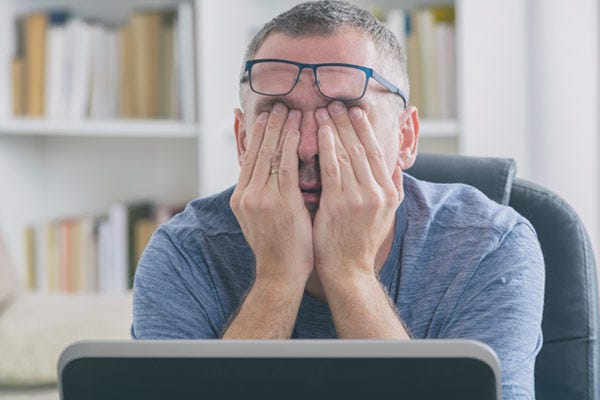

Can Treating Sleep Apnea Help With Anxiety?
Happily the answer is yes - it can! Continuous Positive Airway Pressure (CPAP) is a non-invasive treatment that keeps your airway open through the night, allowing you to breathe normally and sleep soundly. This way you get the rest your mind needs to better navigate and cope with your sleep disorder, as well as mental health conditions like panic disorder, post-traumatic stress disorder, or even just reoccurring daily stressors. And there’s plenty - the ongoing coronavirus pandemic, world events we hear about on the news, or just…you know…living with a mood disorder. According to this article published in European Respiratory Journal :
“CPAP treatment significantly improves anxiety and depression scores [...] in OSAS patients.”
If there’s any chance for significant improvement in your mental health, it is well worth making the effort to pause the doomscrolling that can cause so much stress nowadays. We know it can be hard to reach out for help when symptoms of anxiety ramp up, but it’s worth it to call your doctor about sleep deprivation and if it may correlate with your mental health issues.
They can also support and guide you through checking for symptoms of sleep apnea. Treating OSA isn’t just about getting a good night’s sleep reducing anxiety, either. Sleep apnea can cause a host of cardiovascular problems as well. If you’d like another advocate for seeking treatment, call a cardiologist. They will tell you that patients with OSA have an increased risk for high blood pressure, heart disease, and heart failure - up to a 140% increase!
How is Sleep Apnea Treated?
To investigate if you are getting quality sleep, your doctor will recommend a sleep study. These days, sleep studies can be performed at home in your own bed or overseen by a sleep specialist in-lab.
A sleep sutdy will determine your AHI (Apnea Hypopnea Index - or how many times per hour you have a 10-second pause or decline in breathing), which is how they measure if, and to what extent, you are suffering from OSA. These cessations in breathing are the source of many people’s sleep issues, causing them to wake up multiple times in the middle of the night to resume breathing.
Your doctor will most likely prescribe a CPAP machine, which uses an oral appliance that you wear over your mouth, nose, or both while you sleep. It keeps air pressure flowing steadily through your airways to prevent them from collapsing.
It may sound daunting, but there’s no need to be nervous. Getting expert guidance and the gear you need to succeed in your obstructive sleep apnea treatments can help take the edge off your anxiety. CPAPsupplies.com is here to help!

